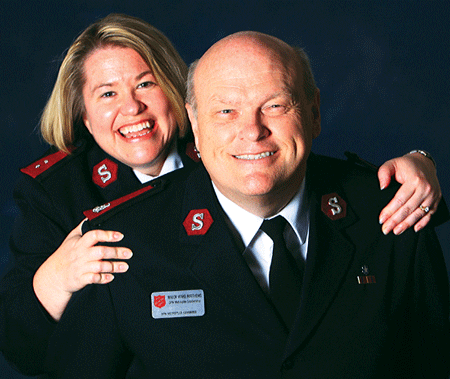In 1983, Commissioner John Needham appeared on the long-running news program, currently in its 44th season.
Throughout its 30th year, New Frontier will reprint articles from 1983, its first year of publication. The following piece appeared in New Frontier, vol. 1, no. 1, Feb. 1, 1983.
Television newsman Morley Safer recently interviewed Commissioner John D. Needham, national commander of The Salvation Army, on the television program “60 Minutes.” The subject concerned the Army’s withdrawal from active membership in the World Council of Churches.
Throughout the segment of the program Safer continually made the point that contributors to church collection plates in the United States are probably unaware of the nature of the causes supported by the World Council. After interviewing Council representatives it became somewhat apparent that the Council itself was not able to control the ultimate use of its support for humanitarian causes, but gave the $85 million in faith that the money would not be used for bombs and bullets.
Needham states that the ultimate “straw” requiring the Army’s decision to terminate full membership in the Council came with the actions of the Patriotic Front in Zimbabwe, a group that had been supported by the World Council of Churches. The Patriotic Front, Needham said, unleashed guerilla warfare, which resulted in the death of two Salvationists. “The Army,” Needham noted, “has served in Zimbabwe (Rhodesia) for over 80 years, trying to help people in that land.” Having Salvationists die from bullets fired by members of an organization supported by the World Council became just too much, he added.
The program also interviewed leaders of the World Council, and a basic philosophical difference between that organization and the Army became apparent. Seemingly the Council seeks to achieve a better world by changing society, while the Army attempts to achieve the same goal by changing human beings from the inside, one life at a time. The program gave the impression that the World Council is prepared to help redistribute power through support of various political groups, while the Army seeks to redistribute power through the introduction of Jesus Christ into the lives of men and women.












